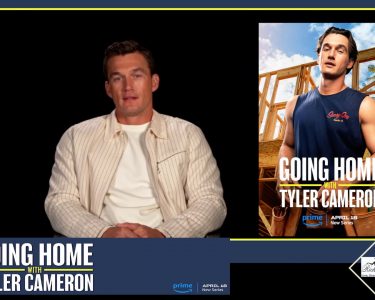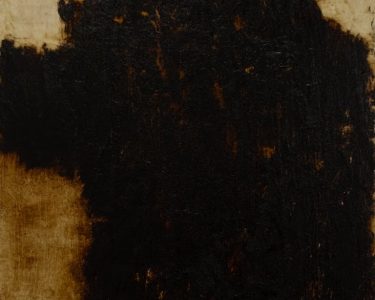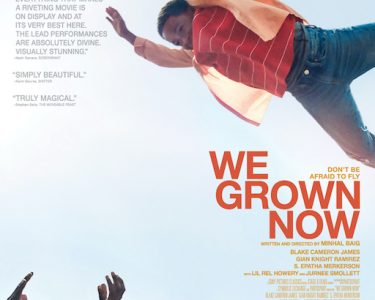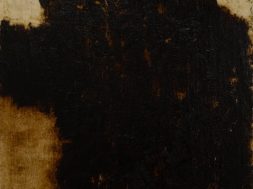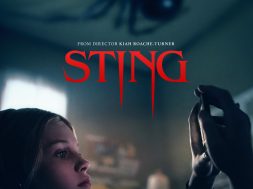
Five factions run the underground life of the prestigious Haldwell boarding school. At the head of the most powerful faction – The Spades – sits Selah Summers. By turns charming and callous, she chooses whom to keep close and whom to cut loose, walking the fine line between being feared and loved.
In the closed world of an elite Pennsylvania boarding school, Haldwell, the student body is run by five factions. Seventeen-year-old Selah Summers (Lovie Simone) runs the most dominant group, the Spades, with unshakable poise, as they cater to the most classic of vices and supply students with coveted, illegal alcohol and pills. Tensions between the factions escalate, and when Selah’s best friend/right hand Maxxie (MOONLIGHT’s Jharrel Jerome) becomes distracted by a new love, Selah takes on a protégée, enamored sophomore Paloma (Celeste O’Connor), to whom she imparts her wisdom on ruling the school. But with graduation looming and Paloma proving an impressively quick study, Selah’s fears turn sinister as she grapples with losing the control by which she defines herself.

Henry Hunter Hall stars in SELAH AND THE SPADES Photo: Courtesy of Amazon Studios 
(L-R) Lovie Simone and Jharrel Jerome star in SELAH AND THE SPADES Photo: Courtesy of Amazon Studios

In her feature debut, writer/director Tayarisha Poe immerses us in a heightened depiction of teenage politics. This searing character study encapsulates just how intoxicating power can be for a teenage girl who acutely feels the threat of being denied it. Exciting newcomer Lovie Simone’s performance beautifully embodies both Selah’s publicly impeccable command and the internal fears and uncertainty that drive it.

A CONVERSATION WITH WRITER-DIRECTOR TAYARISHA POE

How did this project originate?
I made an overture to Selah and the Spades, called “Overture,” in 2014, knowing I eventually wanted to make a feature. But I didn’t know how to write a feature script, and I didn’t know what it would be about, so I wrote short stories about the characters and their world — one every day for the month of November 2014. At the end of the month I had all these stories. Since I knew how to write and take photos, I turned the stories into separate multimedia works. It’s not the most conventional approach to making a movie but it worked for the story because I wound up spending so much time world-building and thinking about the lives of these kids, which in the end made the feature itself so much more complex and rich.
What was the inspiration for the story?
After graduating from college in 2012 and starting a real job, I kept wanting to write characters that did whatever they wanted, who kept moving forward in life without overthinking things, or even thinking about them at all.
At what point did you decide to make a gangster movie set in high school?
From the project’s inception; the first Selah story I wrote was about Selah watching from afar as Maxxie beats up this kid who owes them money. It was about this girl who doesn’t get her hands dirty — she sends other people to do her dirty work. That’s the kind of story I’ve always been drawn to.
Who is Selah and how has she evolved over the years?

She’s a 17-year-old girl who’s already well aware that her actions are constantly under review by others, but I’m still asking myself where that comes from. She’s been around for a long time, but she’s always been the character she is. She’s an amalgamation of the strong women I’m friends with, and sometimes see myself as — but it’s less about who those women actually are than it is about how others perceive them. Selah was born out of this frustration of me knowing that if were too headstrong or aggressive, I might be stereotyped as an aggressive black woman, so I spent a lot of time being chill and even-tempered. But it’s exhausting to constantly be thinking about how other people are seeing you, so Selah was born of my frustration with that, combined with the notion of examining what life would be like if you didn’t have to lean into the image of what you should be, or how you should act, or what you should be doing with your life, or your body, or your energy. Selah came out of those feelings, and she’s evolved over the years into something deeper and more complex.
This is a movie about power. What did you want to explore about power through this movie, or through these characters?
Power is an addictive thing, and I’m interested in the things people do in order to hold onto power, especially if you’re a person who lacks power, like a woman for example. What will you do to hold onto power once you have it? I’m interested in exploring that, because who doesn’t want power? Who doesn’t want to be able to do whatever they want and nobody can tell them otherwise — to me that’s a thrilling thing.
What makes Selah powerful?
People who are good at holding onto power tend to be those who are constantly competing against themselves, and I see that quality in Selah. That sort of constant competition is powerful unto itself — it’s something I feel like I’m examining every day of my life, in everything I write.
Describe the dynamic between Selah and Paloma.
I wrote Selah and Paloma because I wanted to explore the relationships teenage girls have with one another, which are often more all-consuming than romantic relationships. They can be stronger and more important than the relationships they have with teenage boys, who don’t have a lot of substance at that age. I often feel like we don’t have a language to talk about the depth of our relationships with our closest friends — it still feels like we put the importance of close friendships on the backburner to romantic relationships. When I wrote these characters, it was so obvious to me that this was a love story between two people, even though it’s not about sex and romance. These are two people who are so passionate about each other they almost destroy themselves, and each other.
High school is a hotbed of hormones but in your movie it’s also about criminal rackets. Describe The Haldwell School in your own words.
This is a heightened, fictional portrayal of what boarding school actually is. I started attending one beginning in tenth grade, and Haldwell isn’t far off from my life there. You’re living in a hermetic environment removed from your parents and family, and you get to make your own rules, you have your own little society. There are so many things that me and my friends did in boarding school that we would never do outside that particular setting — there’s even a language you use that’s different from the outside world. You have to find the person you need to be in order to live within a world like Haldwell, and it’s not the person you are when you go home. At Haldwell, Selah is this powerful version of herself that’s much different from the person she is at home with her mother, and I find that independence, and the power that comes with it, to be very exciting.
Were there organized factions at your boarding school?
Yes, every school has cliques, because everybody gravitates towards people who are doing the kinds of things they want to be doing, it’s normal, it’s how we socialize. But when you’re a teenager, and you have all these hormones, and you live away from home, among your friends, those cliques become heightened. At my school, while we didn’t have a five-faction mafia mindset going on, there were still very strong and identifiable cliques that didn’t exist at my previous high school, and which I haven’t seen anyplace else.
What was your inspiration for the five factions at Haldwell?
They come from all the mafia and gangster movies I’ve ever seen, there’s always someone who’s betting on something, and who’s responsible for throwing parties, or for getting drugs. And there’s always a group like the prefects because somebody has to be responsible for making sure we get away with all this stuff. Imagine a bunch of kids who grew up watching The Godfather getting to a place where they have all this freedom; the first thing they’re going to do is create their own system of order within that free world.
Why did you want to cast Lovie Simone as Selah?

She first auditioned for Paloma. If she played Selah, I worried that she looked so young that we would have to cast everyone else around her to look similar. But thankfully she was cast as Selah, it’s the greatest thing that could have happened to this story. You look at her face in any scene and you see her go through all these emotions in a matter of seconds, you see them written across her face, and then you see her cover them up under this perfect smile. She brought this very real teenage girl experience to the character that was invaluable — she’s brilliant.
She has terrific chemistry with Celeste O’Connor, who plays Paloma…
As soon as the two met, it was love at first sight, they hit it off so well, and you can see that chemistry on screen. Being able to watch them from behind the camera goofing off, helping each other, teaching each other new things — their genuine friendship and affection was amazing to watch.
It’s also an effective ensemble. How did you manage to achieve group chemistry?
Ironically, I took the actors aside and told them what kind of movie they were in — every single character in this movie is living in their own different kind of movie. Paloma is living in a romantic comedy, Selah is in The Godfather, and Maxxie is in a Jane Austen movie like Pride and Prejudice. I also gave everyone complex backstories, they all had reading assignments, short stories that inspired their characters. It also helped that we had the world of Haldwell containing them, this school identity everyone could latch onto and dive deep into. The actors would debate what their characters and factions might do in these hypothetical situations they came up with during downtime — it was like they were writing fan fiction as the story was happening.
Describe the dynamic between Selah and her mother.
Selah is someone who wants to hold onto the power she has at school, but she doesn’t have that power when she’s at home with her mother. As I was writing Selah and her mother, I was trying to think about the difference between how a mother actually behaves toward a teenage daughter, and how the teenage daughter perceives the mother to be, so when Selah talks on the phone with her mother or visits her during a school break, I was always asking myself, is this how it actually happened or is this Selah’s perspective of how her mother appears to her?
At the end of the day it doesn’t matter because at 17 it’s hard to see past your perspective of a situation.
Teenagers go to college to become adults but in your movie, they start out as adults in high school…
Selah doesn’t want to start all over and become an adult again, when she’s already achieved that level of independence and sophistication; it’s hard to risk all the power you have at one school in order to enter this new space, because who knows what’s going to happen there?
How did you find the perfect location for The Haldwell School?
We filmed in Wenham, Massachusetts because of the tax credit, fifteen minutes away from Salem, where we all stayed. We were looking at private schools and colleges and found The Academy at Penguin Hall in Wenham, which is entering its third year as a school. Before that, it was an ad agency, a nunnery, and some wealthy person’s private home, so it’s been through a lot of lives. The students, staff and faculty were all so supportive; many of them are in the movie or worked with us behind the scenes, which was a great community building experience.
What makes teenagers fascinating to you as subjects?
I’m attracted to stories that treat teenagers and the emotional stuff they’re going through seriously, giving them the weight that those things deserve. A lot of the stuff they’re experiencing, like falling in love, or hating somebody, or just the dramatic ups and downs of daily life, is a first for them. When a teenager falls in love and then out of love, they feel like they’re going to die, they genuinely don’t know if they will survive this experience, because it’s never happened before. I’m fascinated by that purity of emotion that exists in teenagers.
What are you trying to say about humanity with this movie?
I should qualify that in no way do I think that Selah is good or bad — and this applies to the other characters, I view them all as neutral and living in a grey area, which is why I love them, because I believe in living in grey areas. But my biggest goal with the film springs out of that phrase sympathy for the devil — but for me, it’s empathy for the devil. I want audiences to have empathy for people who are doing things in life they may disagree with.
Any other things you would like your audience to take away from this movie.
This one is specifically for black girls or people of color but I hope audiences will see people who look like them doing what they want to do — or being able to do whatever they want to do, which is important to me, in addition to having empathy for people who are doing what they want to do. It’s invigorating to see that on the screen, even if it’s not something you yourself would personally do. Hopefully, it will inspire others to do what they want to do in life.
